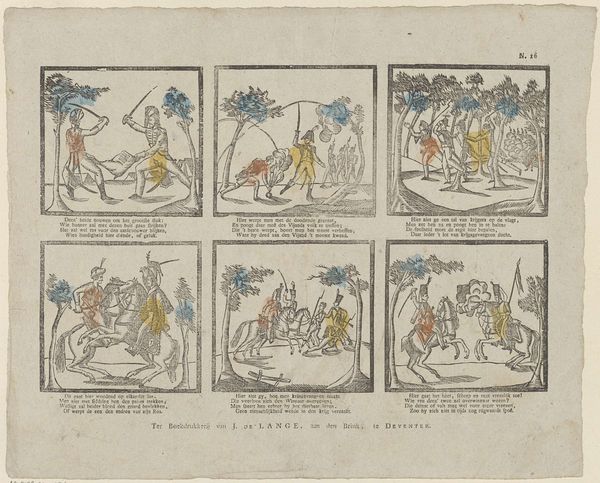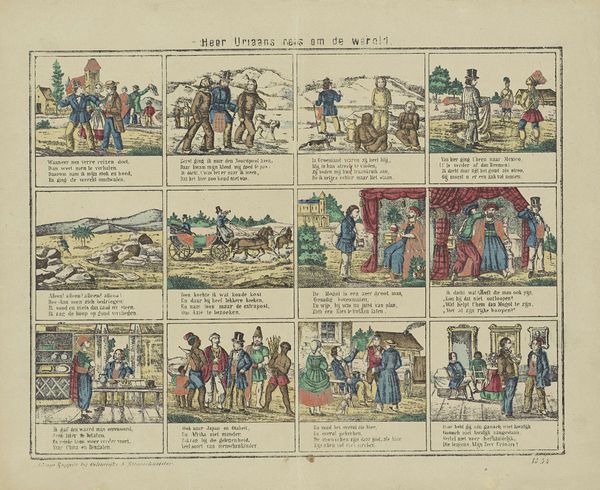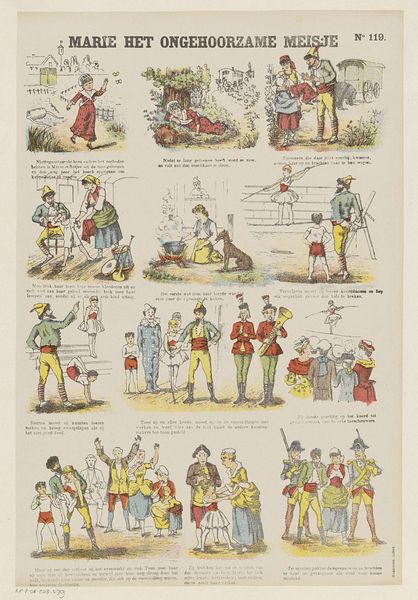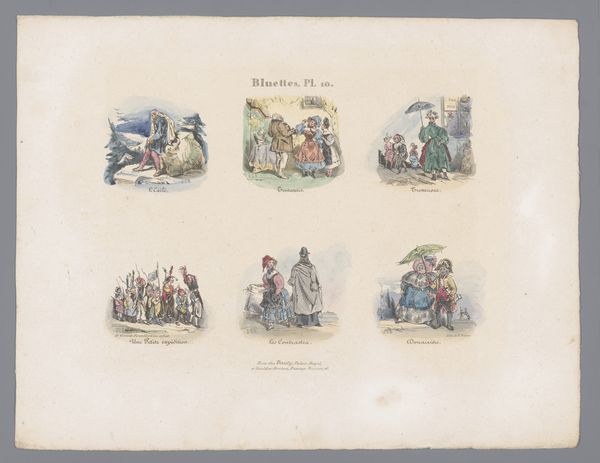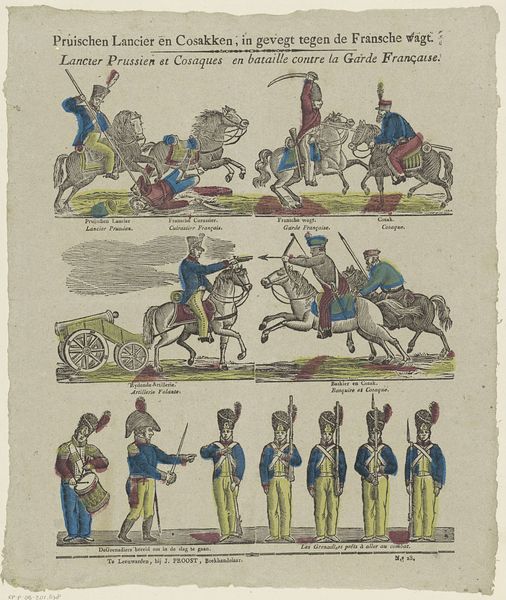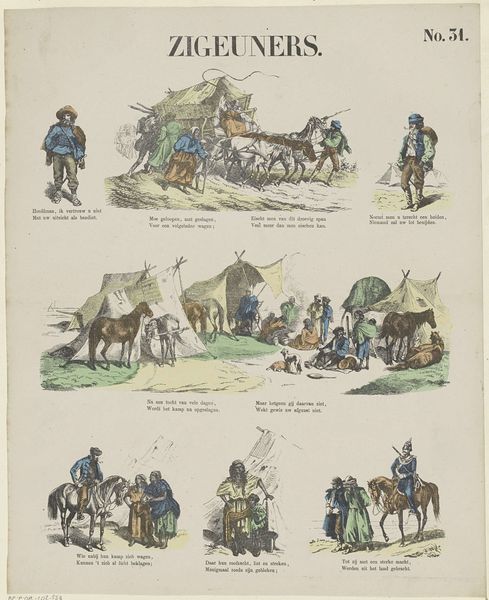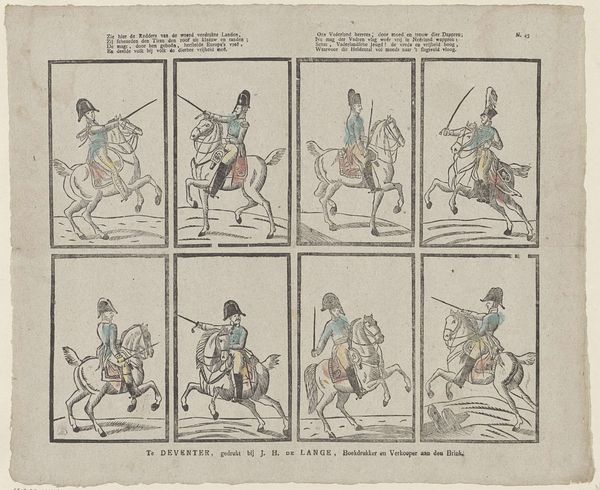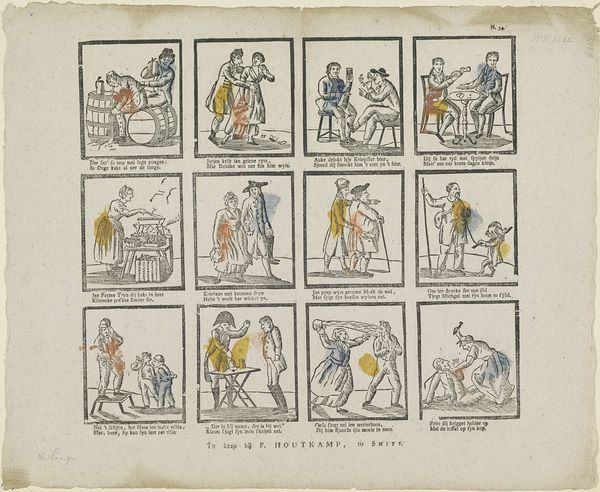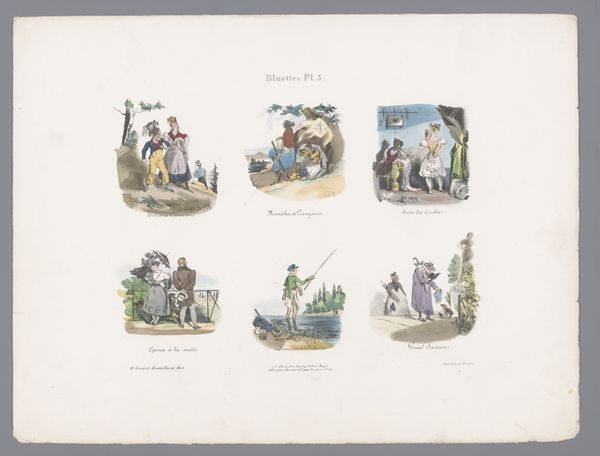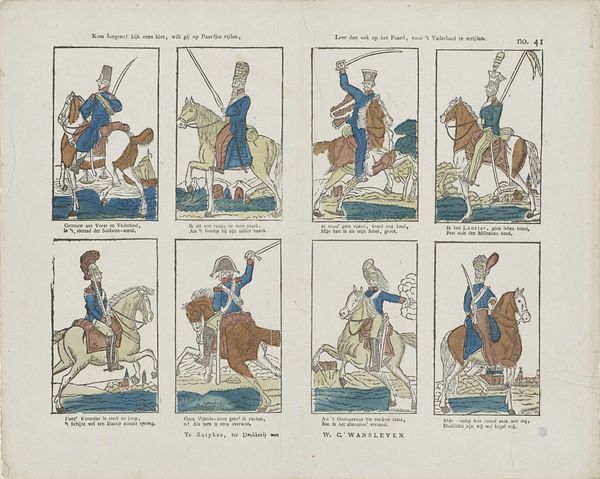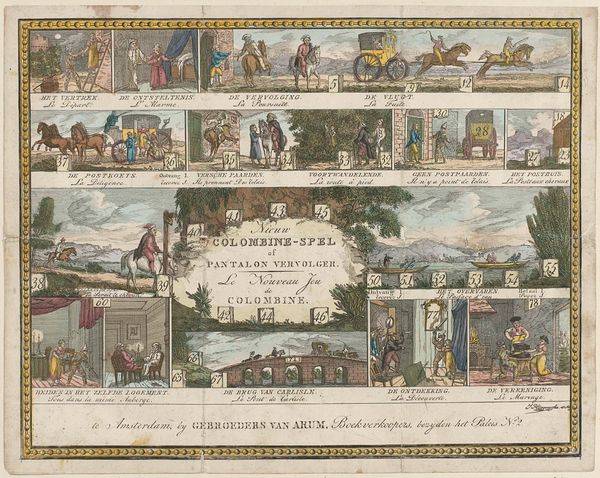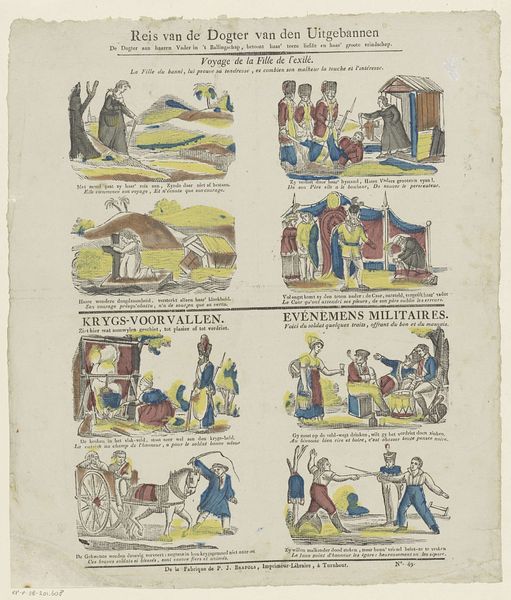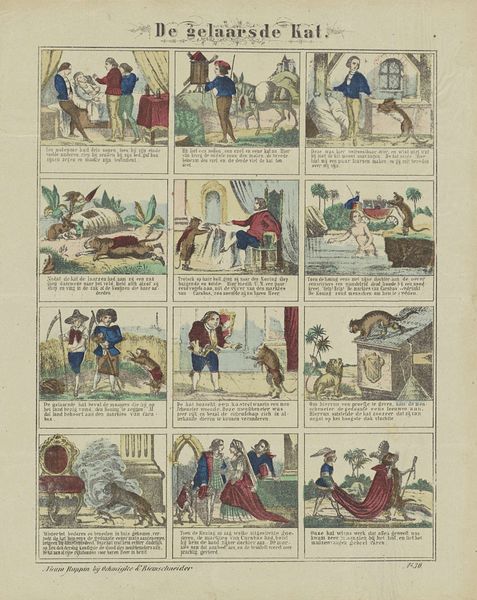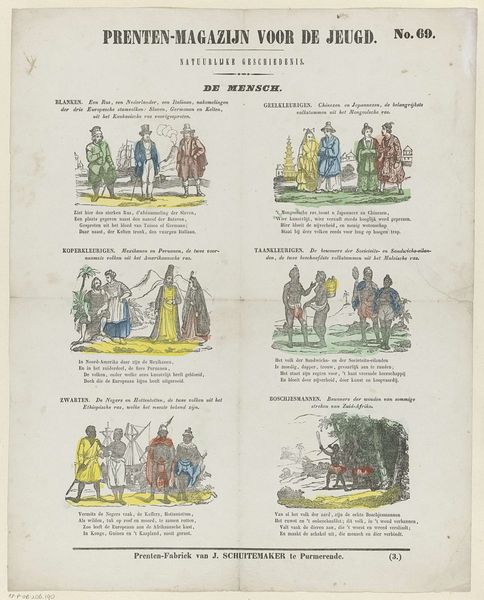
hand-colored-etching, print, etching, engraving
#
hand-colored-etching
# print
#
etching
#
caricature
#
england
#
genre-painting
#
history-painting
#
engraving
Dimensions: 9 3/8 x 13 in. (23.81 x 33.02 cm) (plate)
Copyright: Public Domain
Editor: So, this print, "Old Ways," dates from the early 19th century, it's an anonymous hand-colored etching with several scenes depicting, well, old ways versus new ways of doing things. It almost feels like a humorous critique of progress, though I'm not sure exactly what to make of it all. How do you interpret this work? Curator: It's interesting, isn't it? Think about this piece as situated within a rapidly changing early 19th-century England, shaped by the Industrial Revolution and shifting social structures. It uses caricature, a tool to emphasize perceived absurdities in the clash between tradition and modernity. Look closely: what kind of commentary do you think the artist makes regarding social mobility in that scene with the balloon, or dressing habits? Editor: It does feel like there's a bit of a satirical edge, a jab at those climbing the social ladder too quickly or adopting outlandish fashions, almost as if longing for simpler times, but I wonder who the artist is trying to protect with these nostalgic portrayals? Curator: Exactly! Consider the historical context, who held power, whose voices were amplified, and at whose expense this "progress" came? What if the "old ways" idealizes were also implicated in oppressive systems of the time, and were exclusively available to the powerful and the colonizers? It's worth unpacking this complex relationship between nostalgia and power. Does this affect your original impression? Editor: Yes, absolutely. Seeing it that way makes me rethink what the artist’s nostalgia obscures about social inequalities and other things like the start of the industrial revolution. Curator: It’s a powerful lesson about how art can both reflect and shape perspectives on societal shifts, isn’t it? Editor: I think so. It's about looking critically at the narratives of progress and remembering to ask: progress for whom, and at what cost? Thanks for that different point of view.
Comments
No comments
Be the first to comment and join the conversation on the ultimate creative platform.
